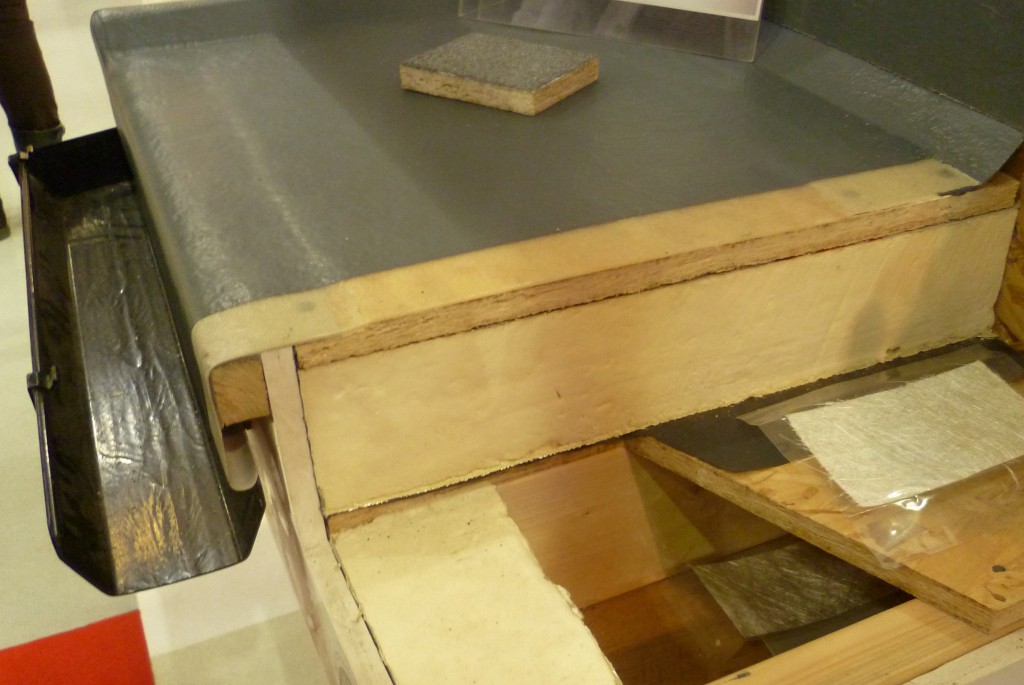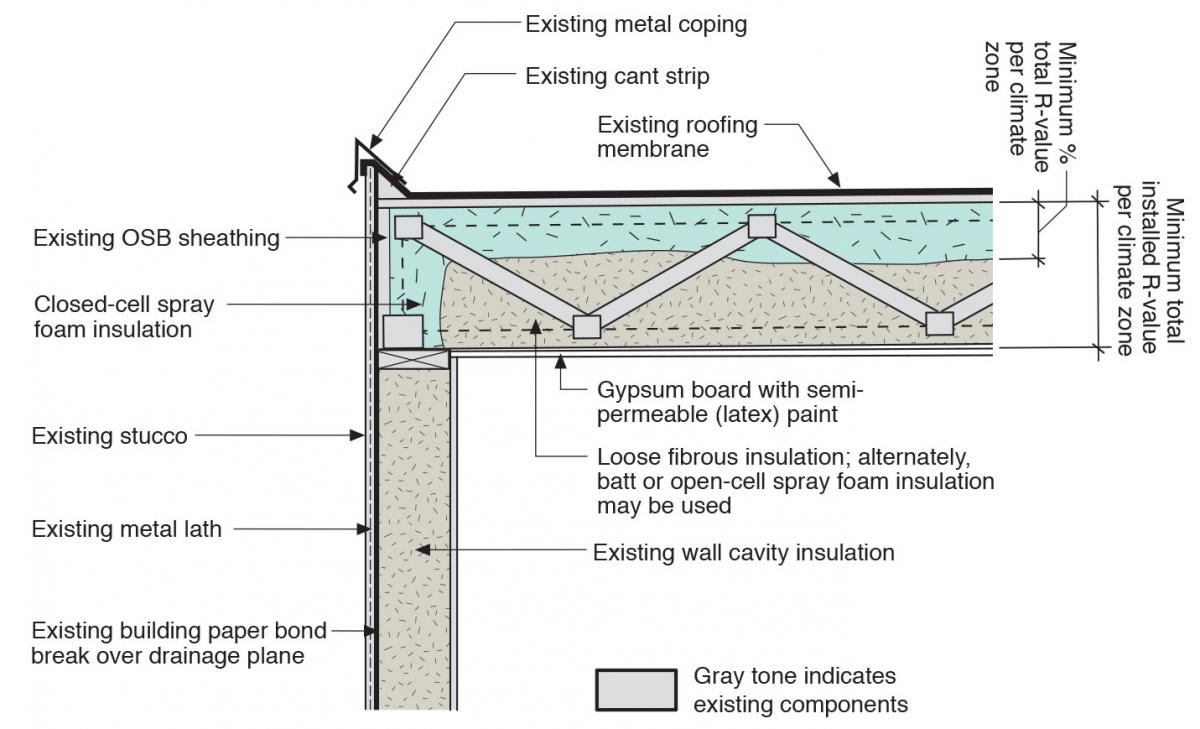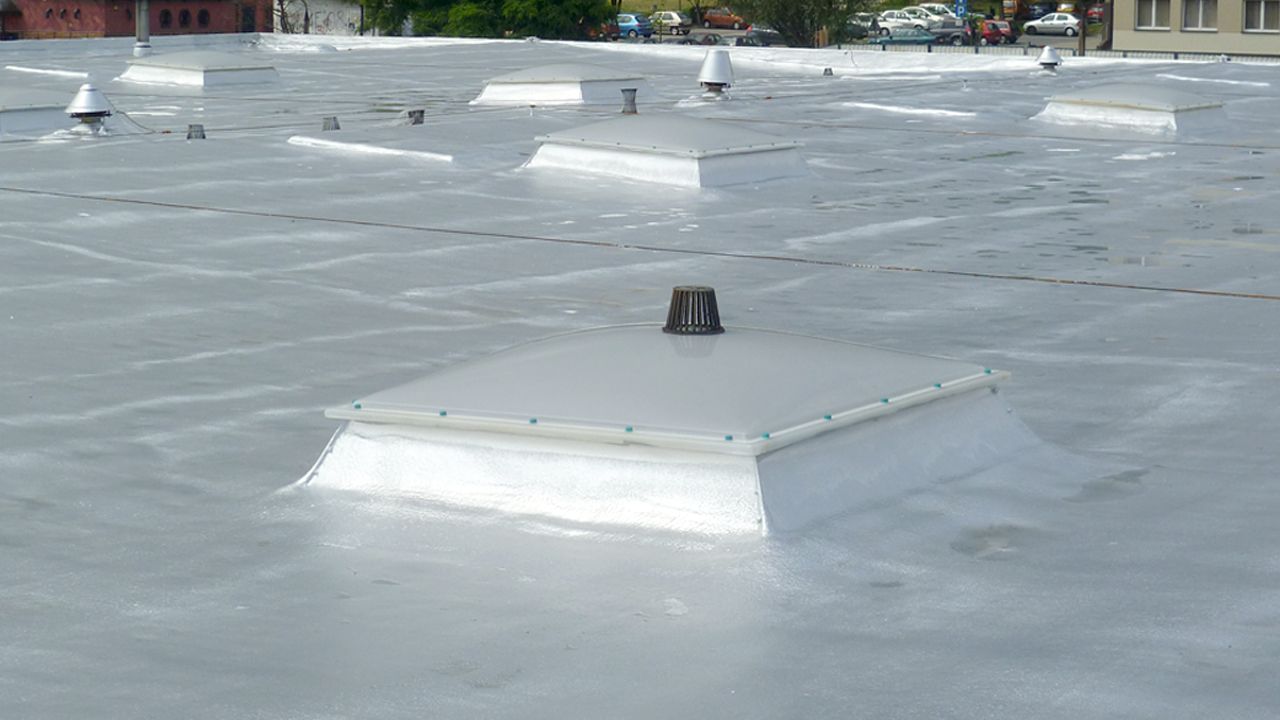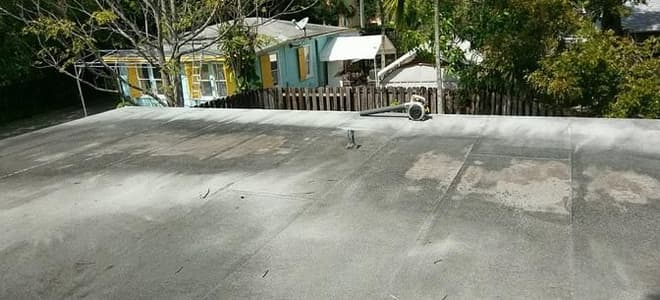Insulation Regulations For Flat Roofs
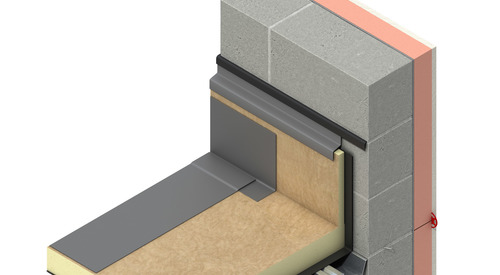
Insulation entirely above the roof deck directly below the roof deck or both above and below the roof deck.
Insulation regulations for flat roofs. It is important to note when insulation is on the floor of the attic the space between the insulation and the roof deck must be vented to the exterior. Building regulations simplified building regulations standards set the levels of thermal insulation required when carrying out building work either for new build or refurbishment projects. Insulation on the floor of the attic figure 1. The limiting u value the maximise u value which cannot be exceeded required under current building regulations for the roof is 0 20w m.
One of the main benefits you will receive from installing a warm flat roof is condensation will not become an issue because of the positioning of the insulation. New rules and practical. U value of a flat roof to comply with part l of the building regulations 2010 all roofs to rooms except those in unheated buildings should be thermally insulated to a maximum u value of of 0 18 w m k. These are expressed as a u value which needs to be achieved.
The material that works best depends largely upon preference in a given situation. Insulation tight to the roof deck i e. Like other roofs insulating a flat one requires ample ventilation a vapor barrier and sealed bypasses. Continuous insulation zones ashrae 90 1 ashrae 189 1 igcc ibc iecc 2004 2007 2010 2013 2016 2009 2011 2014 2012 2015 2009 2012 2015 0 25 1 15 20 2 15 20 25 3 15 20 25 4 15 20 302535 5 15 20 302535 6 15 20 3035 7 15 20 3540 25 8 20 3540 25 minimum r value non residential above roof deck.
This insulation strategy has not changed in recent code iterations and is not discussed in this article. Cold deck this is where the insulation is placed between the joists rafters or in between the ceiling joists in the case of a pitch roof. At least 100mm of rigid board insulation must be positioned on top of the vapour control layer the vapour control layer stops any moisture within the building contaminating the insulation. Materials used to make insulation in these three types include mineral wool fiberglass cellulose fiber vermiculite styrofoam polystyrene and polyurethane.
The below drawing shows the u value requirements set out for new properties in the building regulations for each element walls floors and roofs. Warm deck this is where the insulation is placed on top of the rafters joists and the roof covering is then placed over the insulation. A lower u value indicates better insulation properties hence u value requirements usually specify a maximum value. The actual specification required for a compliant building and necessary building fabric u value targets may vary depending on the actual overall proposed specification and the outcome of the energy.
This can be made of polyethylene membrane bitumen sheet polymeric foil or even be a cheap easy to apply self adhesive sheet. No ventilation is required for these types of roofs.






